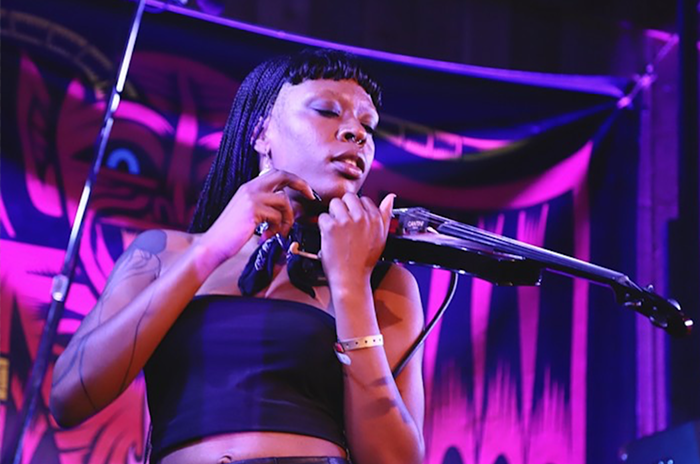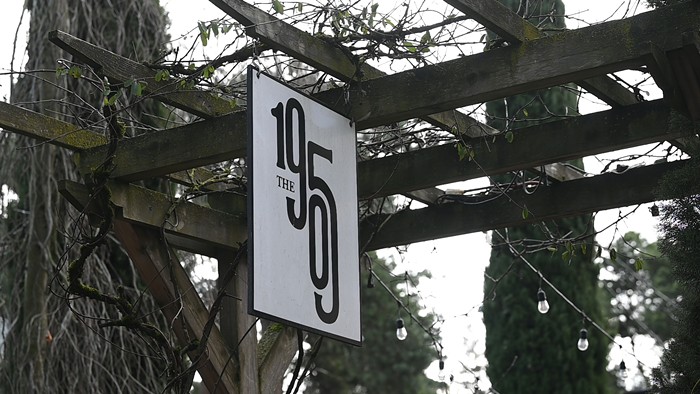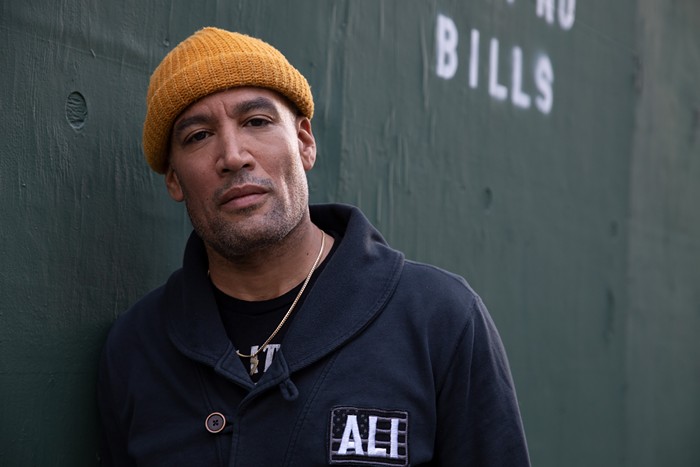IN THIS ARTICLE, I want to list four innovations that make Tricky's two decades of work distinct and admirable. Tricky—the street name for Adrian Thaws, a Bristol-born rapper, programmer, and producer—is one of the primary figures of the triphop movement that surged in the early 1990s and receded in the early 2000s. Though the height of his fame is now nowhere near where it was in 1995, Tricky never really cracked the mainstream of American popular culture: His name has far more currency among music critics than music consumers.
To begin with, during his moment with Massive Attack, Tricky and his rapping partner, Mushroom, solved one of the biggest problems confronting UK emcees at the time: Should they rhyme with a British or American accent? The Tricky/Mushroom solution: to rap with whispered British accents. This approach avoided the problem of sounding like you were running to the safety, or certainty, of black Caribbean English (which had its own tradition of rapping—toasting) or simply mimicking black American English. It preserved the authenticity of the UK accent but made it menacing and streetwise, like two suspicious-looking blokes on a corner scheming out of earshot of the law.
Tricky's second innovation was to produce two successful covers of rap tunes, Public Enemy's "Black Steel in the Hour of Chaos," and Rakim's "Lyrics of Fury." A rap track is by its nature an expression of selfhood: It's all about the rapper's experience, his place in the world, his private concerns, and lifelong beliefs. We can easily imagine almost anyone in the world singing "Mercy, Mercy Me (The Ecology)," but how in the world do you cover the Wu-Tang Clan's "Triumph?" Tricky not only overcame the raw individualism of rap, but brought new life and meaning to Public Enemy's "Black Steel in the Hour of Chaos," and new energy and aggression to "Lyrics of Fury" via his triphop versions. Ultimately, Tricky grasped the individualism of the tracks and universalized them—it was not just about "getting a letter from the government" but rebellion against state-controlled oppression, writing furious rhymes about the state of urban anger itself.
His third innovation was to make beautiful voices say the most strange and violent things without losing their beauty or attraction. "I'll fuck you in the ass/just for a laugh/with the quick speed/I'll make your nose bleed," sings Martina Topley-Bird on the hypnotic "Abbaon Fat Tracks." "Is there cancer in the throat?/No stress/Maybe it's supposed to kill the success/Because success needs killing," sings PJ Harvey on "Broken Homes," a strange ode to the late Biggie Smalls. In each case, the violent imagery does not sour the sweetness of the voices, nor does sweetness make the violence more palatable. The listener is at once disturbed by the violence and drawn to the beauty.
Finally, Tricky consistently uses the lion-masculinity of the dancehall toaster (or rapper) in fascinating ways. On "Ghetto Youth," the toaster reflects on the economic realties of neocolonialism to a thumping, post-Bomb Squad beat and screeching horns. On "Bacative," the best track on Tricky's latest record, Knowle West Boy, the dancehall toaster handles the hard rock beat with complete ease.
What's curious about Tricky's innovations is they have no imitators—with the possible exception of his experiments with dancehall toasting, which, it can be argued, finds successors in the work of Spaceape and Kode9. No one covers rap tracks; few female singers have tongues that connote roses and razor blades as they do on Tricky's tracks; and as for whispering on the mic, although it was the best solution to a British problem, it has no followers. Tricky's innovations begin and end with him.



















